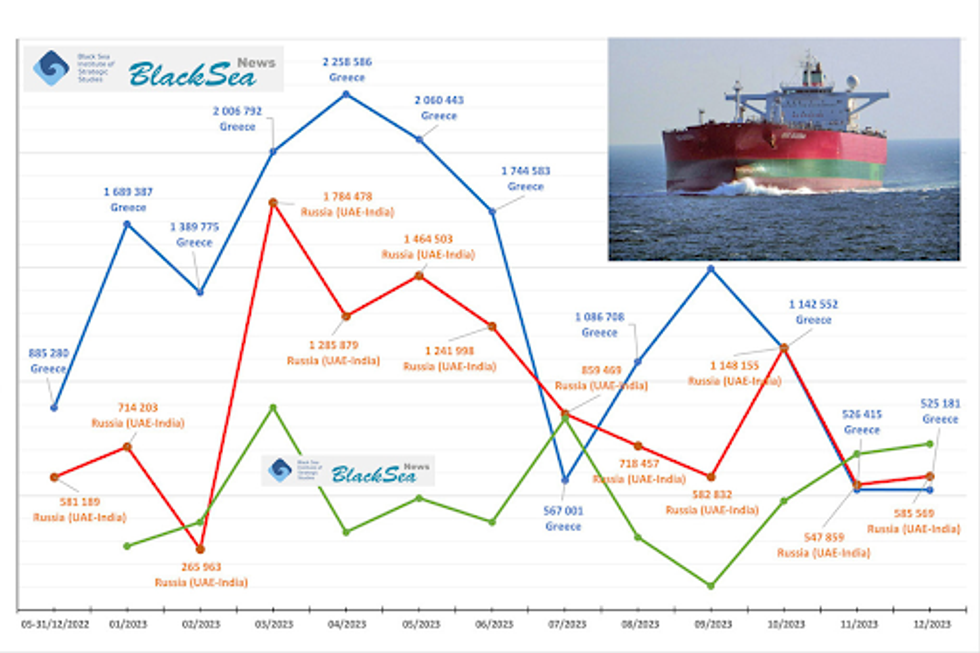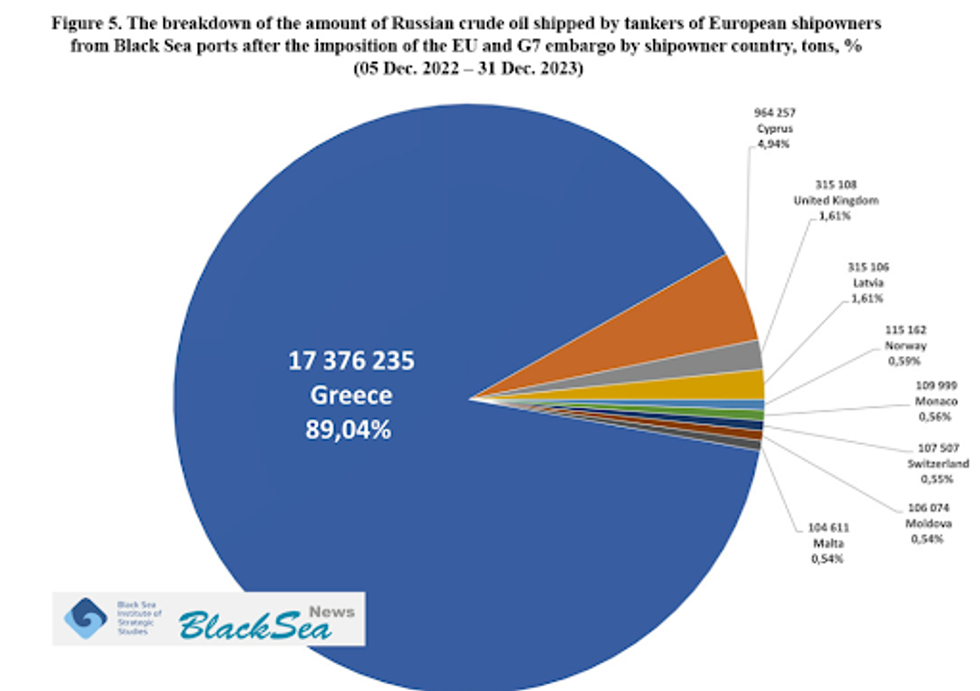Breaking the Chains: How Oil Addiction Empowers Putin's Terror
We are pushing the planet towards mass species extinction, irreversible biodiversity loss, and socio-economic collapse—a fact that Western elites have tried to bypass or ignore for decades. This war must end. So must our addiction to oil and gas.
There is no more vivid and undeniable proof that Russia is a terrorist state than what we witnessed last week: one of the most prestigious pediatric medical facilities in Ukraine and Europe, Okhmatdyt Children’s Hospital in Kyiv, was turned into rubble by a deliberate and targetedmissile attack on July 8.
While Ukrainians confront the brutality of this act of terror with sorrow and grim determination, we call for solidarity and action to address the root of the problem: the world’s addiction to oil, which finances Putin’s regime and his terror campaigns. This addiction also fuels the escalating trade of fossil fuels, driving the global warming and climate disruption that has killed dozens this week alone in the USA. We are pushing the planet towards mass species extinction, irreversible biodiversity loss, and socio-economic collapse—a fact that Western elites have tried to bypass or ignore for decades.
With the Kremlin's blood oil profits amounting to hundreds of billions of dollars, Putin is attempting to build a zombie USSR by funnelling revenues from these exports into his war economy and strengthening totalitarian state control.
Putin’s impunity is fueled by oil profits
Encouraged by impunity and fueled by ongoing flows of Western cash despite sanctions, Putin continues to escalate his terror campaign against Europe and his war against the people of Ukraine. However, his empire can be reduced to rubble with one decisive action: if the West finally heeds the call of its scientists and activists to end its dependency on dirty energy.
Despite sanctions, Russia is selling increasing amounts of oil. Every day, Russia receives over $300 million from crude oil exports alone and around $700 million from all fossil fuels combined. Russia’s federal budget, which has a record allocation to the military this year, relies on these revenues for half of its income.
If the West makes a strategic move to end its dependency on dirty energy, as urged by its scientists and citizen activists for decades, Putin will lose his strongest weapon
Despite sanctions Russia is selling increasingly more oil. Every single day Russia receives more than $300 million from crude oil exports alone and around $700 million from all fossil fuels. Russia’s federal budget, which shows record allocation to the military this year, relies on those streams for half of its income.
In a single day, Russia fired 38 missiles at Ukraine. The X-101 missile, that hit Okhmatdit Child Hospital in the center of Kyiv, cost around $13 million each. The missile attack on the hospital’s dialysis department, left at least 4 dead andmore than 50 injured, including doctors and children. The hospital now lies in ruins. As a result of Russia's latest wave of massive missile strikes on July 8, at least 37 people were killed and 170 were wounded, affecting Dnipro, Kryvyi Rih, and the Donetsk region.
The total cost of the children's hospital attack was estimated by Forbes at $200-250 million, roughly the equivalent of what Russia makes in one day from its crude oil exports. Putin is building a violent and expansionist Russia by funneling blood-oil revenues into his war economy and strengthening totalitarian state control, while destabilizing all democracies he can.
The Missed Turning Point of 2022
In spring 2022, following Russia’s full-scale invasion of Ukraine and the ensuing global energy crisis triggered by it,the International Energy Agency (IEA) proposed specific actions to governments to reduce oil demand significantly. Recommendations were made to switch to clean energy, which is now cheaper on average than fossil fuels, helps solve the climate crisis, and will save trillions of dollars in preventing climate-caused extreme weather catastrophes.
However, the USA and G7 governments did almost nothing to reduce oil demand, and in fact, continue heavily subsidising fossil fuels. Meanwhile, Big Oil capitalized on the turmoil to reap record profits, while also redoubling lobbying efforts, taking legal action against activists, and continuing disinformation campaigns in the media. Some important turning points were missed, and we are now in an even more desperate position than in 2022.
We must state clearly that the American and G7 countries' refusal to follow the IEA’s recommendations on reducing oil demand, combined with their failure to enforce sanctions against Russian oil, is contributing to the deliberate mass murder of civilians and children in Ukraine.
More than two years into the war, Europe and the UK remain among the top contributors to funding the Russian war machine due to incomplete sanctions, lack of enforcement, and lack of political will. The USA has given much support, but has only used limited sanctions, while American companies like Halliburton and SLB have, in fact, sent equipment to Russia to help keep Putin's bloody oil pumping.
Today, Russian blood oil proliferates to new markets, and the shadow tanker fleet endangers the world’s oceans and seas with looming threats of major spills, that can lead to environmental disasters across Europe's coastal regions.
America, still acting as a leader of the free democratic world, must acknowledge that our planet is speeding down a highway to hell. The response to the terrorist attack on Okhmadit Children's Hospital marks a symbolic and crucial turning point: Will we let petro-dictator Putin get away with his crimes, condemning our children and future generations to the doom of new wars and the abyss of runaway climate change? Or will we stand up and fight for a better world, free from fossil fuel addiction?
Putin’s Authoritarian Quests Can Be Stopped
If the West makes a strategic move to end its dependency on dirty energy, as urged by its scientists and citizen activists for decades, Putin will lose his strongest weapon, and his authoritarian and brutal projects can be reduced to rubble.
When the Soviet Union collapsed in the early 1990s, the world saw a remarkable reduction in global CO2 emissions, contributing positively to global climate. This precedent illustrates that dismantling a fossil-fuel-dependent economy can lead to substantial environmental benefits. Phasing out Russian fossil fuels from the global energy mix is not only a geopolitical necessity to curb Putin’s war machine but also a critical step towards achieving energy security and the decarbonization needed to limit global warming.
The US and all other G7 governments must take decisive action to implement structural policies that reduce oil demand and replace Russian oil imports (which are ongoing through refining loopholes) with domestic clean energy alternatives. This includes enforcing stringent sanctions, closing loopholes in existing measures, and investing in renewable energy infrastructure. Embracing electric vehicles, improving public transportation, and incentivizing energy efficiency are essential steps toward breaking free from the grip of fossil fuel addiction.
Russia and Big Oil must be defeated
The current situation demands a united and resolute response from the U.S. and the free world. We cannot afford to repeat past mistakes, where short-term economic interests overshadowed the need for structural shifts to clean energy. The ongoing war in Ukraine and the escalating global climate crisis are intertwined, and addressing one requires addressing the other.
The attack on Okhmatdyt Children’s Hospital is a stark reminder of the human cost of inaction. As long as we fund Putin’s war machine through our reliance on Russian oil, we are complicit in the atrocities against innocent civilians and children. It is time to stand up for a world free from the stranglehold of Big Oil and its devastating impacts on our environment and future.
Leaders of the free world must acknowledge that the path to a sustainable and secure future lies in ending our dependence on fossil fuels. By learning from the collapse of the Soviet Union, we can understand the transformative power of dismantling a fossil fuel-driven economy. The need for bold, structural changes in energy policy is urgent. Together, we can turn the tide against the axis of modern political evil and pave the way for a cleaner, safer, and more equitable world for future generations.




